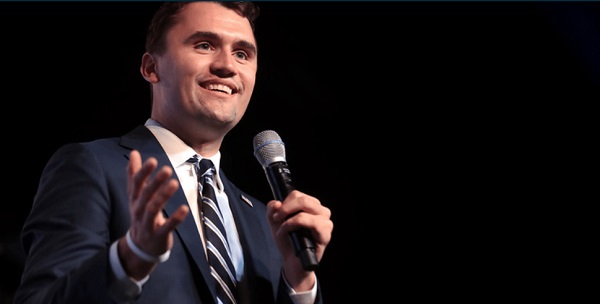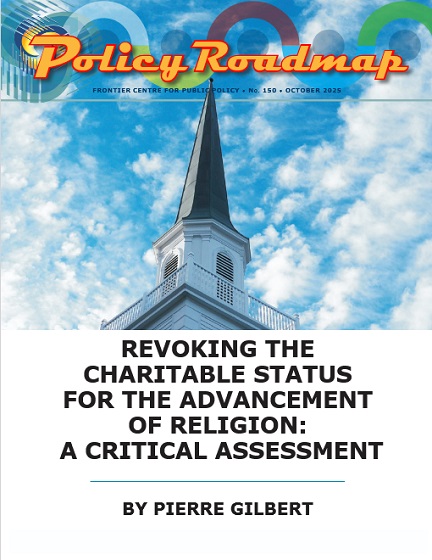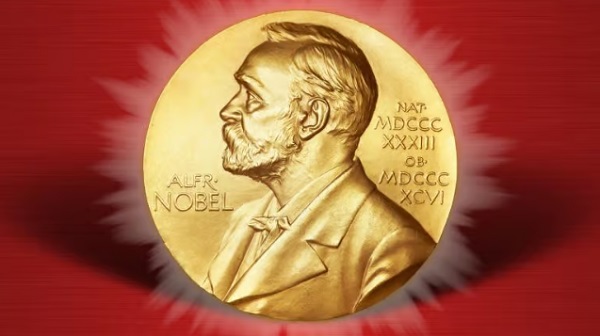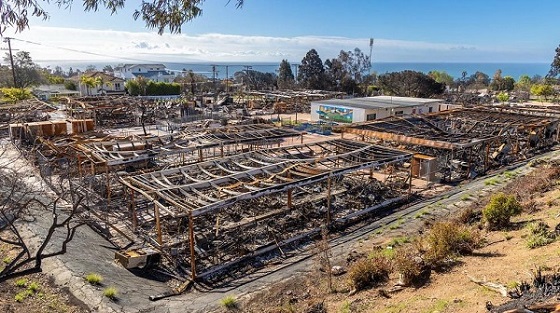C2C Journal
Gwyn Morgan: Natural Gas – Not Nuclear – Is the Key to Powering North America’s Future

From the C2C Journal
By Gwyn Morgan
After decades on the outs with environmentalists and regulators, nuclear power is being heralded as a key component for a “net zero” future of clean, reliable energy. Its promise is likely to fall short, however, due to some hard realities. As North America grapples with the challenge of providing secure, affordable and sustainable energy amidst soaring electricity demand, it is time to accept this fact: natural gas remains the most practical solution for powering our grid and economy.
Nuclear power’s limitations are rooted in its costs, risks and delays. Even under ideal circumstances, building or restarting a nuclear facility is arduous. Consider Microsoft’s much-publicized plan to restart the long-dormant Unit 1 reactor at Three Mile Island in Pennsylvania. This project is lauded as proof of an incipient “nuclear revival”, but despite leveraging existing infrastructure it will cost US$1.6 billion and take four years to bring online.
This is not a unique case. Across North America, nuclear energy projects face monumental lead times. The new generation of small modular reactors (SMRs), often touted as a game-changer, is still largely theoretical. In Canada – Alberta in particular – discussions around SMRs have been ongoing for years, with no concrete progress. The most optimistic projections estimate the first SMR in Western Canada might be operational by 2034.
The reality is that nuclear energy cannot scale quickly enough to meet urgent electricity needs. Canada’s power grid is already strained, and electricity demand is set to grow significantly, driven by electric vehicles and enormous data centres for AI applications. Nuclear power, even if expanded aggressively, cannot fill the gap within the necessary timeframes.
Natural gas, by contrast, is abundant, flexible, low-risk – and highly affordable. It accounts for 40 percent of U.S. electricity generation and plays a critical role in Canada’s energy mix. Unlike nuclear, natural gas infrastructure can be built rapidly, ensuring that new capacity comes online when it’s needed – not decades later. Gas-fired plants are cost-effective and capable of providing consistent, large-scale power while being capable of rapid starts and shut-downs, making them suitable for meeting both base-load and “peaking” power demands.
Climate-related concerns surrounding natural gas need to be put in perspective. Natural gas is the lowest-emission fossil fuel and produces less than half the carbon dioxide of coal per unit of energy output. It is also highly adaptable, supporting renewable energy integration by compensating for the intermittency of wind and solar power.
Nuclear energy advocates frequently highlight its zero-emission credentials, yet they overlook its immense challenges, not just the front-end problems of high cost and long lead times, but ongoing waste disposal and future decommissioning.
Natural gas, by comparison, presents fewer risks. Its production and distribution systems are well-established, and North America is uniquely positioned to benefit from the vast reserves underlying all three countries on the continent. Despite low prices and ever-increasing regulatory obstacles, Canada’s natural gas production has been setting new records.
Streamlining regulatory processes and expanding liquefied natural gas (LNG) export capacity would help revive Canada’s battered economy, with plenty of natural gas left over to help meet growing domestic electricity needs.
Critics argue that investing in natural gas is at odds with the “energy transition” to a glorious net zero future, but this oversimplifies the related challenges and ignores hard realities. By reducing reliance on dirtier fuels like coal, natural gas can help lower a country’s greenhouse gas emissions while providing the reliability needed to support economic growth and renewable energy integration.
Europe’s energy crisis following the recent reduction of Russian gas imports underscores natural gas’s vital role in maintaining reliable electricity supplies. As nations like Germany still phase out nuclear power due to the sheer blind ideology of their left-wing parties, they’re growing more dependent on natural gas to keep the lights (mostly) on and the factories (partially) humming.
Europe is already a destination for LNG exported from the U.S. Gulf Coast, and American LNG exports will soon resume growth under the incoming Trump Administration. Canada has the resources and know-how to similarly scale up its LNG exports; all we need is a supportive federal government.
For all its theoretical benefits, nuclear power remains impractical for meeting immediate and medium-term energy demands. Its high costs, lengthy timelines and significant remaining public opposition make it unlikely to serve as North America’s energy backbone.
Natural gas, on the other hand, is affordable, scalable and reliable. It is the fuel that powers industries, keeps homes warm and provides the stability our electricity grid needs – whether or not we ever transition to “net zero”. By prioritizing investment in natural gas infrastructure and expanding its use, we can meet today’s energy challenges head-on while laying the groundwork for tomorrow’s innovations.
The original, full-length version of this article was recently published in C2C Journal.
Gwyn Morgan is a retired business leader who was a director of five global corporations.
C2C Journal
Charlie Kirk and the Fragility of Civic Peace

The brutal assassination of Charlie Kirk was shocking not only for its violence but for the chilling aftermath – the revelling on the left, the mendacious reporting, and the calls for more political violence.
Kirk embodied a conversational politics now rare. As founder of Turning Point USA, he brought millions of young people to conservatism by touring campuses and inviting critics – not just supporters – to the microphone. He strode into the lion’s den of higher education, taking hostile questions with civility, good humour, and reasoned argument rather than rancour.
“Disagreement,” he liked to say, “is a healthy part of our systems.”
It wasn’t necessary to share his convictions to recognize his courage and composure.
The reaction to Kirk’s death on September 10 at Utah Valley University was particularly disturbing. News outlets and social media overflowed with callous gloating and demands for further violence. “He got what he deserved” was among the milder responses. A conservative group logged more than 50,000 such comments in four days. Democratic members booed a motion for silence in Congress. A Secret Service agent called Kirk’s death “karma.”
How did it become virtuous to cheer a fellow human being’s death? Part of the answer lies in what literary critic George Steiner called the passing of the tragic vision. In The Death of Tragedy (1961), Steiner argued that tragedy – once the highest expression of human dignity amid suffering – had perished in Western culture, and its loss was civilizational.
The tragic view holds that suffering is an inherent part of the human condition. Chance, flaw, and necessity are woven into our very existence. This recognition distinguishes the tragic sensibility from utopian schemes of collective redemption. Enlightenment rationalism envisioned the world as scientifically perfectible; Marxism reinterpreted conflict as a class struggle culminating in utopia; the managerial state promised that expertise would eliminate disorder.
But when we forget life’s limits, politics ceases to be the art of prudence and compromise and becomes a fever dream of utopia. Once utopia is the aim, violence is reimagined as a form of purification. The French Revolution’s Terror, Stalin’s gulags, Mao’s Cultural Revolution, Pol Pot’s killing fields – each arose from rejecting Kant’s warning: “Out of the crooked timber of humanity, no straight thing was ever built.”
Tragic sensibility is not fatalism. It tempers ambition with humility, recognizing that motives are mixed, victories partial, and knowledge flawed – and that opponents share our frailties. To acknowledge this crookedness is clarity, not despair. Only those who accept tragic limits can build anything lasting.
Politics lacking tragic sensibility becomes a substitute religion, promising salvation through power. Opponents become enemies; compromise becomes betrayal; violence follows. Those convinced of their righteousness feel justified in demonizing others. This tendency is especially apparent on today’s left; its ‘virtuous’ rhetoric of compassion often masks self-righteousness – and self-righteousness without humility can be deadly.
Consider Kirk’s accused assassin, 22-year-old Tyler Robinson. Raised in a stable, conservative family, Robinson drifted leftward and was recently radicalized, seemingly influenced by his transitioning roommate. He referred to himself as a leftist who loathed Trump. One can envision him then, cloaked in righteousness, believing he struck a blow against evil. The opponent becomes not a fellow human being but a symbol of oppression. Murder is no longer malice but moral necessity – the cost of purity. As Robespierre said, “Terror is nothing other than prompt, severe, inflexible justice; it is therefore an emanation of virtue.”
Canadians often imagine themselves immune to such eruptions. Yet our history tells another story: the October Crisis, the Air India bombing… seventy churches burned after unproven residential-school claims, and on-going anti-Jewish protests. Violence disguised as virtue is not alien to our soul.
Canadian academics exhibited hatred comparable to Kirk’s worst American foes. “Shooting is honestly too good for so many of you fascist c—-,” posted University of Toronto professor Ruth Marshall hours after Kirk’s death. Toronto schoolchildren reportedly cheered the news, while teachers watched passively.
This moment is perilously fragile. Social media amplifies outrage, rewarding anger while penalizing restraint. Every disagreement becomes an “existential crisis.” Every opponent is Hitler. The language of “emergency” and “genocide” floods politics, quickening the slide from rhetoric into violence.
The antidote is not repression but the recovery of tragic wisdom: we must temper politics with humility. This requires cultural renewal and virtues that allow citizens to live with differences: prudence, courage, humility, and charity. We need a civic ethos that balances rights with responsibilities, diversity with shared norms. Without restraint, pluralism degenerates into tribalism.
As Solzhenitsyn wrote in The Gulag Archipelago: “the line dividing good and evil cuts through the heart of every human being.” This understanding counters ideologies dividing the world into pure and impure, oppressor and oppressed. The battle is within each heart – and that recognition demands humility.
Kirk’s assassination serves as a grim warning. The decline of civic peace is never accidental; it springs from ideological fanaticism, the conviction that one’s cause is so virtuous that opponents must be demonized and destroyed. Every destructive ideology cloaks itself in righteousness even as it paves the road to cruelty.
Charlie Kirk’s death exposes the danger of politics detached from a tragic sensibility. We must foster a politics tempered with humility, recognizing that our victories are partial and our understanding imperfect. Without this humble wisdom, freedom itself cannot survive.
The original, full-length version of this article was recently published in C2C Journal.
Patrick Keeney is a Canadian writer who divides his time between Kelowna, B.C., and Thailand.
Alberta
Jason Kenney’s Separatist Panic Misses the Point

By Collin May
Time was a former political leader’s expected role was to enjoy retirement in relative obscurity, resisting the urge to wade into political debate. Conservatives generally stick to that tradition. Ralph Klein certainly did after his term ended. Stephen Harper has made no attempt to upstage his successors. Yet former Alberta Premier Jason Kenney can’t seem to help himself.
From the boardroom of Bennett Jones, one of Calgary’s oldest law firms, Kenney recently offered his thoughts on the unspeakable horrors that await the province should it entertain a debate (perhaps even call a referendum) on separating from Canada. While dismissing Alberta separatists as a “perennially angry minority”, Kenney nevertheless declared a vote on separation would “would divide families, divide communities, divide friends for no useful purpose.” Business partnerships, church and community groups, even marriages and families would break apart, he warned, “shredding the social fabric of the province.”
It was a remarkable burst of untethered hyperbole, but it says more about the former premier than it does about the province he once led.
Kenney’s take on the history of Alberta separatism is telling. It’s a 50-year-old “discredited concept,” he said, whose acolytes “couldn’t get elected dogcatcher in this province.” Exhibit A in his analysis was Gordon Kesler, an Alberta rodeo rider and oil company scout who believed independence was the only way to save Alberta from Ottawa’s depredations. In a 1982 byelection, Kesler got himself very much elected as an MLA under the Western Canada Concept banner. He later lost in the general election to Peter Lougheed’s Progressive Conservatives, but Lougheed did not belittle Albertans for entertaining separatist notions. Instead, he asked for a mandate to fight Ottawa more effectively — and got it.
Kenney, by contrast, ridicules separatists while simultaneously painting them as an existential menace. Worse, he likens them to followers of Vladimir Putin and (perhaps even worse?) Donald Trump. “[I]f you just follow them on social media,” he claimed, one will quickly see that they cheered on Putin’s attack on Ukraine and Trump’s threat of making Canada the 51 st state.
Kenney’s latest intervention fits a pattern. As premier from 2019 to 2022, he could not resist trying to stamp out dissent. During the pandemic, he alienated political allies by dismissing their concerns about mandatory vaccines with contempt. He saw his ouster as UCP leader as the result of a Trumpian-inspired or “MAGA” campaign. UCP party faithful, however, said their rejection of him had far more to do with his top-down leadership style and habit of “blaming other people for the errors he made.”
What’s especially striking about Kenney’s separatist obsession is that he seems to understand as little about Albertans now as he did while premier. Albertans have long debated separation without the province descending into chaos. When Kesler won his seat, people talked about separation, argued its pros and cons, but couples were not running to their divorce lawyers over the issue and business partners were not at each other’s throats.
And there are legitimate reasons for concern about Canada’s social and political structure, as well as the role provinces play in that structure. Canada’s institutions operate largely on an old colonial model that concentrates power in the original population centre of southern Ontario and Quebec. This has not, and does not, make for great national cohesion or political participation. Instead, it feeds constant fuel to separatist fires.
The current threat to Canadian identity comes as well from the ideological commitments of our federal government. Early in his time as Prime Minister, Justin Trudeau declared Canada to be a “post-national” state. This sort of moniker is consistent with the popularly-designated woke doctrine that eschews the liberal nation-state, democratic procedures and individual freedom in favour of tribalist narratives and identity politics.
The obsession with post-nation-state policies has initiated the dissolution of the Canadian nation regardless of whether Quebeckers or Albertans actually vote for separation. We are all becoming de facto separatists within a dissolving Canada, a drift that current Prime Minister Mark Carney’s ineffective “elbows up” attitude has done nothing to reverse.
Kenney’s panicked musings about Alberta separatists would have us believe the province need only continue the fight for a better deal within the Canadian federation. Kenney pursued just such a policy, and failed signally to deliver. For too many Albertans today, his advice does not reflect the political reality on the ground nor appreciate the worrying trends within Canadian institutions and among our political class.
Kenney likes to associate himself with Edmund Burke, the father of conservatism and defender of venerable institutions. But Burke was known as much in his day for his sympathies with the American revolutionaries and their creation of an experimental new republic as he was for his contempt towards the French Revolution and its Reign of Terror. Burke’s conservatism still linked real actions with true words. It would be advisable, perhaps, to keep our own political language here in Alberta within the bounds of the plausible rather than fly off into the fanciful.
The original, full-length version of this article was recently published in C2C Journal.
Collin May is a lawyer, adjunct lecturer in community health sciences with the Cumming School of Medicine at the University of Calgary, and the author of a number of articles and reviews on the psychology, social theory and philosophy of cancel culture.
-

 Business2 days ago
Business2 days agoTruckers see pay surge as ICE sweeps illegal drivers off U.S. highways
-

 International2 days ago
International2 days agoHamas releases all living hostages under Trump peace plan
-

 Health12 hours ago
Health12 hours agoColorado gave over 500 people assisted suicide drugs solely for eating disorders in 2024
-

 Energy15 hours ago
Energy15 hours agoIndigenous Communities Support Pipelines, Why No One Talks About That
-

 Business15 hours ago
Business15 hours agoFinance Committee Recommendation To Revoke Charitable Status For Religion Short Sighted And Destructive
-

 Alberta14 hours ago
Alberta14 hours agoOil Sands are the Costco of world energy – dependable and you know exactly where to find it
-

 Brownstone Institute2 days ago
Brownstone Institute2 days agoTrump Covets the Nobel Peace Prize
-

 Business2 days ago
Business2 days agoNetherlands Seizes Chinese-Owned Chipmaker in Unprecedented Security Move






